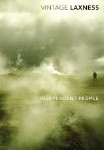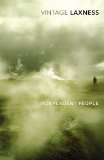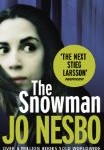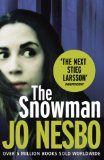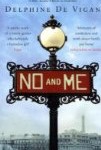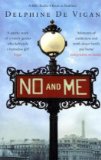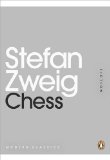 Translated from the German by Anthea Bell
Translated from the German by Anthea Bell
Five words from the blurb: chess, stranger, disturbing, obsession, genius
In the 1920s and 30s Stefan Zweig was the most translated novelist in the world. His work is very popular in continental Europe, but few people in the UK have heard of him. I have to admit that I was one of those people until blogging introduced me to his name last year. Since then he has been high on my wish list, so when Penguin offered me a copy of his novella, Chess, (to celebrate the launch of their mini modern classic series) I jumped at the chance. I can see why people love his writing so much – Chess is a wonderful little book.
Chess is set on a cruise ship; on board is an elusive chess grand master who finally agrees to play against a group of passengers. The passengers are easily beaten, but then a mysterious man suggests some moves and the tables are turned. The secret behind this man’s skill at the game is slowly revealed in a shocking, but gripping display of the capabilities of the human mind.
I have always been interested in any kind of monomaniac obsessed by a single idea, for the more a man restricts himself the closer he is, conversely, to infinity; characters like this, apparently remote from reality, are like termites using their own material to build a remarkable and unique small-scale version of the world.
I know how to play chess, but have no special interest in it and so before reading this book I was a little worried about whether or not I’d enjoy a whole book on the subject. I needn’t have worried – this book is beautifully written and no knowledge of the game is required. It is hard to explain the real magic of this book without giving away the entire plot, but I’ll just explain that this book investigates the power of human endurance when faced with some of the atrocities that a war brings.
My only criticism of this book is that the darker elements are all written as reflections, explained to an enquirer many years after the event. This means they aren’t as intense as they would have been if we had experienced them as they were happening. I know a lot of people will find this to be a positive, but I prefer to feel the emotion and fear instead of just having the situation explained.
Recommended to anyone who enjoys reading books that deal with the darker side of human nature.
I couldn’t find a negative review for this one:
….it is difficult to find just the right words to explain the wonder of Stefan Zweig’s words. Fleur Fisher in her World
Zweig’s ability to carry the reader along through summarised lives, stories within stories and long monologues is remarkable….. Asylum
…..the novella is as well-nigh perfect as might be expected. A Common Reader
Chess is one of the Penguin Mini Modern Classics (a series of 50 books launched on 15th February). They can be bought individually for £3 each or as the beautiful Penguin Mini Modern Classics Box Set.

